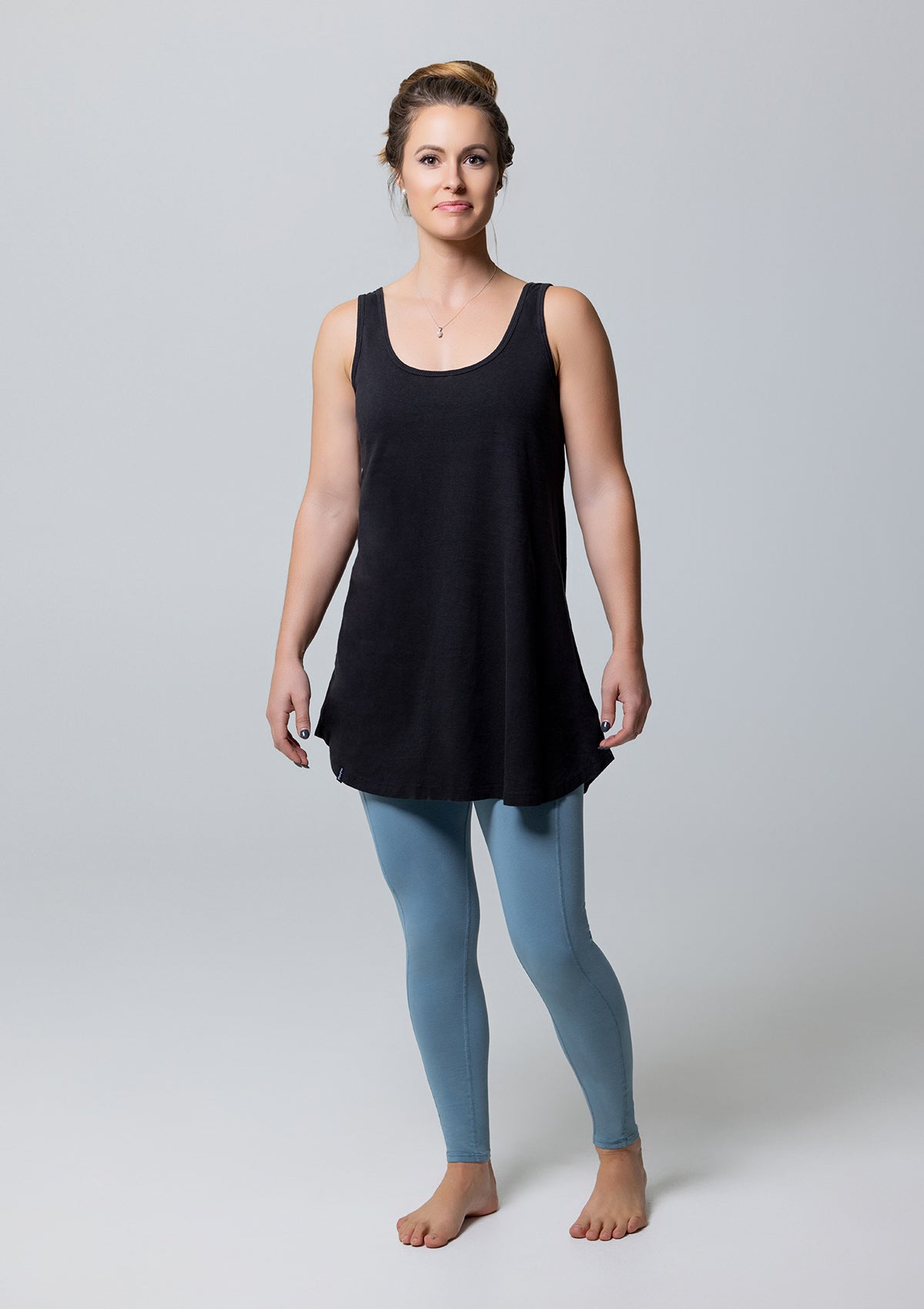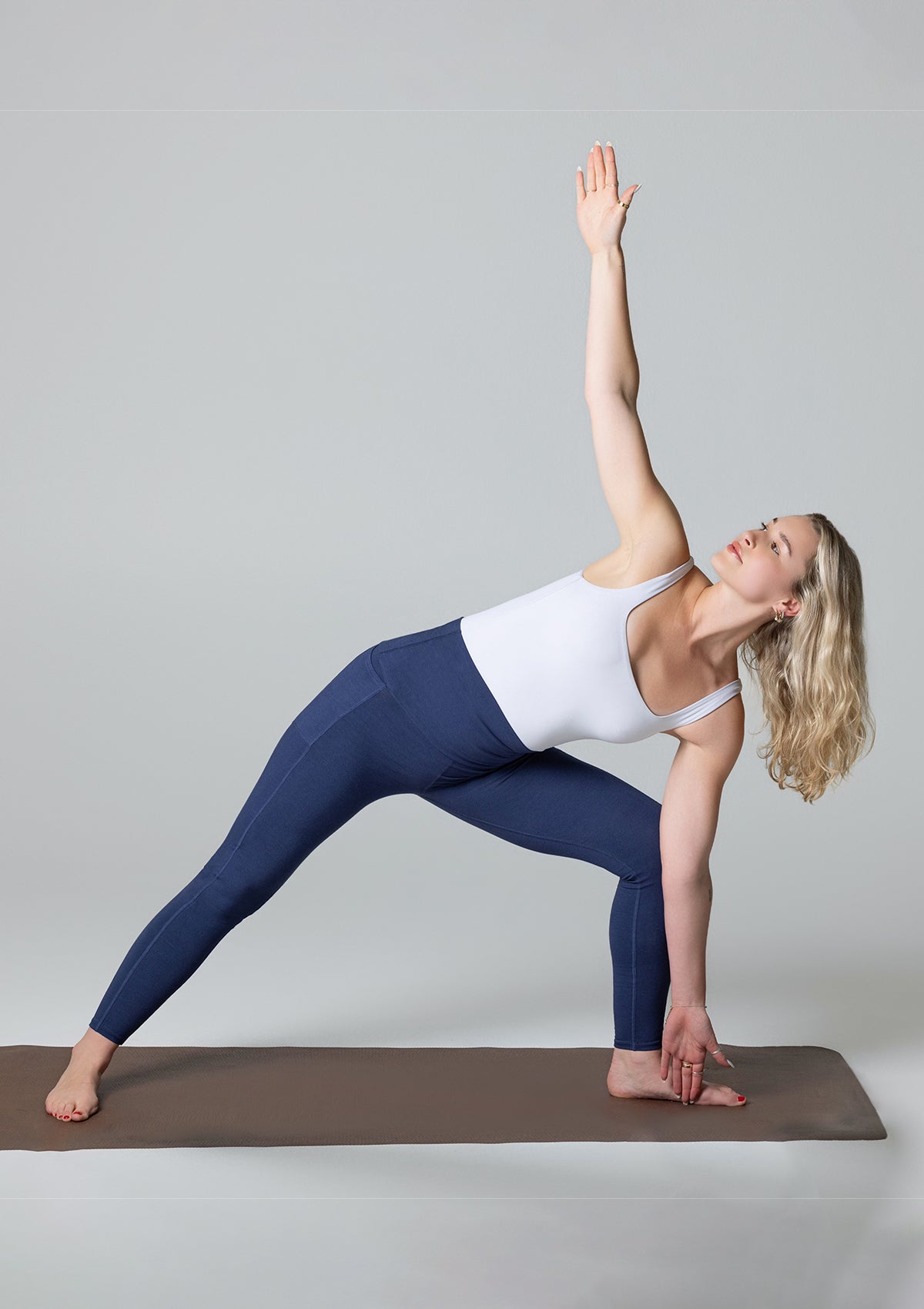
Non-Toxic Clothing Brands: How to Spot Genuine Chemical-Free Apparel
In an era of conscious consumerism, non-toxic clothing has become a cornerstone of sustainable fashion, blending wellness with environmental stewardship. As health-conscious shoppers and eco-advocates seek alternatives to conventional textiles often laden with pesticides, synthetic dyes, and microplastics, the demand for chemical-free apparel surges.
From parents prioritizing nontoxic baby clothing brands to athletes opting for breathable organic basics, the shift toward safer fabrics reflects a growing awareness of how garments impact personal health and the planet. But how can you discern genuinely non-toxic options in a market rife with greenwashing?
The answer lies in understanding materials like organic cotton, linen, and Tencel, which are cultivated without harmful chemicals, and recognizing certifications such as GOTS (Global Organic Textile Standard). Brands like Mate the Label and PuraKai lead the charge, offering sustainable clothing rooted in transparency, from seed to garment.
Choosing organic, non-toxic clothing brands reduces exposure to allergens and toxins and supports ethical supply chains and water-saving practices. This guide unpacks how to spot authentic chemical-free apparel because what you wear should nurture your well-being, not compromise it.
What Are Non-Toxic Clothing Brands?

Non-toxic clothing brands prioritize garments crafted without harmful chemicals, from farm to wardrobe. Unlike conventional fashion, which often relies on synthetic dyes, pesticides, and polyester (a petroleum-based fabric linked to microplastic pollution), these brands use organic fabrics like GOTS-certified organic cotton and non-toxic dyes to safeguard both wearers and ecosystems.
For example, nontoxic baby clothing brands avoid irritants like formaldehyde, while organic non toxic clothing brands opt for organic fleece and linen to reduce skin sensitivities. The fashion industry’s reliance on toxic chemicals contributes to water pollution and health risks, but sustainable brands like PuraKai.
Those that use organic materials and fair trade certified practices prove that ethical production is possible. Choosing non-toxic clothing brands means supporting cleaner farming (no synthetic pesticides), safer workplaces, and biodegradable textiles with lighter footprints. It’s not just about what you wear, and it’s a pledge to protect your health and the planet, one organic clothing staple at a time.
Key Features of Non-Toxic Clothing

Non-toxic clothing prioritizes health, sustainability, and environmental responsibility by using natural and organic materials, avoiding harmful chemicals, and implementing ethical production methods.
If you are looking for the best non-toxic clothing brands or organic non-toxic clothing brands, understanding key features can help you make informed choices. Below is a detailed breakdown of what makes clothing truly non-toxic and sustainable.

Non-toxic fashion is about making clothing safe for wearers and responsible for the planet.
Consumers can ensure they support ethical and sustainable brands by choosing certified organic, made-with-organic, or Fair Trade-certified clothing.
The best non-toxic clothing brands prioritize these features, helping to create a cleaner, greener fashion industry.
Benefits of Non-Toxic Clothing

Non-toxic clothing offers a healthier and more sustainable alternative to conventional apparel. Made from organic and natural materials, these garments reduce exposure to harmful chemicals while promoting eco-friendly production practices.
Choosing non-toxic fabrics benefits individuals and the environment, making it a responsible and practical choice.
Here’s why investing in clothes made from organic cotton, organic linen, and other sustainable materials is worth considering:
Health Benefits:
-
Reduced Skin Irritation and Allergies: Many non-toxic clothing brands avoid harsh chemicals and synthetic dyes, making their products ideal for people with sensitive skin or allergies.
-
Hypoallergenic and Skin-Friendly: Organic non-toxic clothing brands prioritize natural fibers like certified organic cotton and organic linen, which are soft, breathable, and gentle on the skin.
-
Absence of Harmful Chemicals: Unlike conventional cotton, which is often treated with pesticides and synthetic dyes, non-toxic fabrics are free from toxic residues that can be absorbed by the skin over time.
Environmental Benefits:
-
Sustainable Practices: The best non-toxic clothing brands support ethical and sustainable farming methods, reducing soil degradation and water pollution.
-
Lower Carbon Footprint: Apparel brands that use organic and non-toxic materials require less energy and emit fewer greenhouse gases during production.
-
Biodegradable Materials: Many natural clothing fabrics, such as organic stretch cotton and organic linen, decompose naturally, reducing landfill textile waste.
-
Safer for Babies and Children: Nontoxic baby clothing brands ensure that infants and toddlers wear safe, chemical-free fabrics that support healthy development.
How to Spot Genuine Non-Toxic Clothing Brands?

Identifying authentic, non-toxic clothing brands is essential in today’s eco-conscious market. Knowing what certifications and practices to look for can help you ensure you choose clean essentials made with organic materials and certified non-toxic dyes.
Here’s a concise guide to help you navigate the world of eco-friendly clothing and sustainable activewear, including natural fiber clothing options that stand out as some of the best organic choices.
Certifications and Standards:
- Look for well-known certifications such as GOTS (Global Organic Textile Standard) and OEKO-TEX, which indicate that the clothing items are made with natural, non-toxic ingredients. A brand that uses non-toxic methods and materials, such as USA-grown organic cotton yarns or organic cotton jerseys, is a sign of commitment to environmental safety.
- Certifications like Bluesign further verify that manufacturing minimizes harmful chemicals and waste, ensuring that your non-toxic and nontoxic baby clothing brands are safe for everyone.
Transparency and Sustainable Practices:
- Research whether a brand designs clothing with full disclosure about material sourcing and factory conditions. Authentic brands will have detailed information on their websites to help you feel confident about your purchase.
- Verify if the brand uses organic, non-toxic clothing practices, including sourcing organic cotton and utilizing certified non-toxic dyes. This commitment supports eco-friendly clothing and avoids toxic fashion trends.
Smart Fabric Choices:
- Opt for clothing items made from natural fibers such as organic cotton, hemp, or linen rather than synthetic alternatives. This choice ensures that the collection of non-toxic options remains comfortable and healthy for the environment.
By following these guidelines, you can confidently select your favorite brands offering the best organic cotton clothing and eco-friendly alternatives, ensuring your wardrobe is truly non-toxic.
Best Non-Toxic Clothing Brands

As consumers become more conscious of what goes into their clothing, the demand for eco-friendly clothing has risen. The best non-toxic clothing brands use natural fiber clothing, certified non-toxic dyes, and ethical production methods to ensure their collections are safe for both wearers and the environment.
Choosing organic, non-toxic clothing brands means investing in apparel free from harmful chemicals, making it an excellent choice for sensitive skin and sustainable living. Below are some of our favorite brands to help you build a clean, toxin-free wardrobe.
-
PuraKai: A standout in sustainable fashion, PuraKai uses non-toxic, USA-grown organic cotton yarns to design its clothing. Its collection of non-toxic essentials includes organic cotton leggings, hemp shirts, and soft organic cotton jersey tees. PuraKai’s commitment to ocean conservation ensures that its clothing is free from toxic fashion practices, making it one of the best organic cotton clothing brands available.
-
Pact: Known for its clean essentials made with organic cotton, Pact produces a wide range of everyday clothing items, including organic cotton leggings, underwear, and loungewear. The brand uses organic cotton certified by the Global Organic Textile Standard (GOTS) and non-toxic dyes, ensuring safe and sustainable apparel.
-
Organic Basics: This brand uses organic cotton and recycled materials to craft minimalist, eco-friendly clothing. Its non-toxic, low-impact dyeing processes and ethical supply chain make it a top choice for non-toxic fashion. Its product line includes breathable underwear, activewear, and timeless basics.
-
Kotn: With a focus on fair trade and transparency, Kotn’s clothing is free from harmful chemicals and is made with organic cotton grown in Egypt. Their collection includes high-quality t-shirts, cozy sweats, and structured basics that are stylish and sustainable.
-
MATE the Label: One of the best organic clothing brands, MATE the Label specializes in clean essentials made with organic, non-toxic materials. They use GOTS-certified organic cotton, hemp, and linen to create stylish, everyday apparel like joggers, tank tops, and dresses. Their clothing items are dyed with certified non-toxic dyes, ensuring an immaculate and safe wardrobe.
Tips for Making Non-Toxic Clothing Choices
Choosing non-toxic clothing is essential for a healthier lifestyle and a more sustainable planet. Many conventional fabrics contain harmful chemicals, synthetic dyes, and toxic treatments that can affect human health and the environment.
By making mindful choices, you can support ethical production, reduce exposure to toxins, and contribute to a cleaner fashion industry. Here are some effective ways to build a non-toxic wardrobe:
-
Buy Secondhand Goods: Purchasing secondhand clothes is an affordable and sustainable choice. It reduces waste and the demand for new, chemically treated clothing while offering unique, vintage finds.
-
Quality Over Quantity: Focus on durable, well-made pieces rather than trendy, disposable fashion. High-quality items from brands known for their organic or recycled materials often last longer, reducing the need for frequent replacements.
-
Buy Less: Reduce impulse purchases. By being mindful of your clothing needs, you’ll not only save money but also decrease your carbon footprint. Less is more when it comes to sustainable fashion.
-
Support Ethical Brands: Look for non-toxic clothing brands that are committed to transparent supply chains and ethical practices. Many of the best non-toxic clothing brands use certified organic materials, such as USA-grown organic cotton yarns and organic bamboo.
-
Upcycle: Repurpose old clothes instead of discarding them. Upcycling can breathe new life into your wardrobe, giving garments a second chance while keeping them out of landfills.
-
Buy Clothes from Sustainable Brands: Seek out companies that design their clothing with sustainability in mind. Many brands now offer organic cotton, organic bamboo, and recycled fabrics, making it easy to make environmentally friendly choices.
-
Choose Organic Fabrics: Clothes made from organic cotton, bamboo, or other organic fibers are free from harmful chemicals. Organic non-toxic clothing brands ensure the fabrics are safe for your skin and the environment.
-
Clothes Swap: Engage in a clothes swapping event with friends or online. This way, you can refresh your wardrobe without contributing to fast fashion.
-
Donate: Donating clothes that no longer fit or that you no longer need helps others while also reducing waste.
-
Educate Yourself: Research fabric types and certifications like GOTS (Global Organic Textile Standard). This ensures the clothing you buy is certified organic and produced sustainably.
-
Rent or Borrow Clothing: For special occasions, consider renting clothing. This reduces the demand for one-time wear garments that end up in landfills.
-
Take Care of Your Clothing: Proper care extends the life of your clothes. Wash with gentle, non-toxic detergents and line-dry when possible to reduce energy use and prevent fabric damage.
PuraKai’s Commitment to Non-Toxic Clothing
PuraKai’s commitment to non-toxic clothing is rooted in a deep dedication to creating sustainable, chemical-free apparel. The brand prides itself on using natural, organic materials, such as USA-grown organic cotton yarns and organic bamboo, to design clothing collections. Using organic cotton, PuraKai ensures that the cotton is grown without synthetic pesticides or fertilizers, benefiting both the environment and consumers' health.
This dedication is further demonstrated through PuraKai's transparency in sourcing materials from certified organic cotton farmers and commitment to eco-friendly manufacturing practices. PuraKai’s products, like its organic cotton leggings and sustainable activewear collection, are made with materials that meet global standards for safety and sustainability.
These products are also certified, ensuring customers choose eco-friendly, non-toxic apparel. For those interested in PuraKai’s offerings, exploring their organic cotton leggings and sustainable activewear collection will highlight the brand's true commitment to quality and the environment.
Conclusion
Prioritizing non-toxic clothing is essential for both personal health and environmental sustainability. Consumers can support the movement towards safer, chemical-free apparel by choosing brands like Mate the Label and Organic Basics. This choice reduces exposure to harmful substances and promotes a more sustainable fashion industry.
As we become more aware of the impacts of toxic fashion, making informed decisions can lead to a healthier planet and you. Consider exploring options like PuraKai for your non-toxic apparel needs, and join the growing community committed to a cleaner, greener future in fashion.






Leave a comment
This site is protected by hCaptcha and the hCaptcha Privacy Policy and Terms of Service apply.